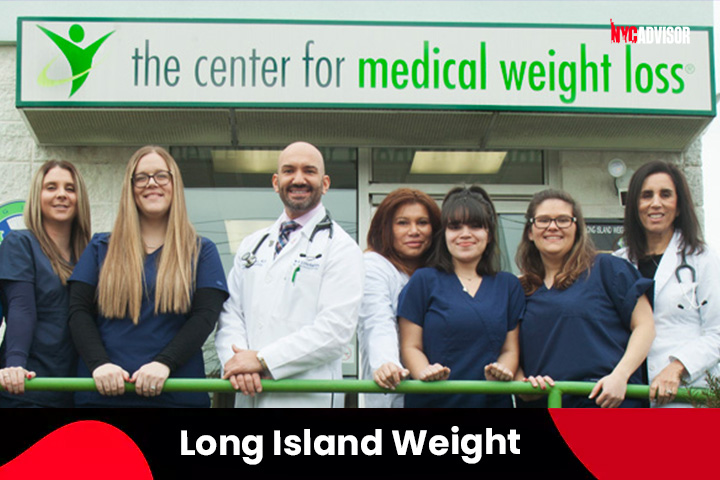Weight Loss Programs on Long Island: A Comprehensive Guide: Weight Loss Programs Long Island
Long Island offers a diverse range of weight loss programs catering to various needs and preferences. This guide provides an overview of the available options, outlining program types, costs, popular diet plans, fitness components, medical supervision, and factors to consider when making a choice. Understanding these aspects is crucial for individuals seeking effective and sustainable weight loss solutions.
Overview of Weight Loss Programs on Long Island
Long Island boasts a variety of weight loss programs, encompassing medical, dietary, and fitness-based approaches. These programs differ significantly in their methodologies, cost structures, and the level of medical supervision provided. Medical weight loss programs often involve physician oversight and may include prescription medications or procedures. Dietary programs focus on nutritional guidance and meal planning, while fitness-based programs emphasize exercise and physical activity. Cost ranges vary considerably, depending on the program’s intensity, duration, and services offered.
| Program Name | Type | Cost Range | Location |
|---|---|---|---|
| Example Program A | Medical | $5000 – $10000 | Multiple locations across Long Island |
| Example Program B | Dietary | $1000 – $3000 | Huntington |
| Example Program C | Fitness-based | $500 – $1500 | Various Gyms across Nassau and Suffolk Counties |
| Example Program D | Holistic (combining diet and fitness) | $2000 – $5000 | East Hampton |
Popular Diet Plans in Long Island Weight Loss Programs
Several popular diets are incorporated into Long Island weight loss programs. The Ketogenic diet, characterized by very low carbohydrate intake, forces the body to burn fat for energy. The Mediterranean diet, emphasizing fruits, vegetables, whole grains, and healthy fats, promotes overall health and weight management. Low-carb diets restrict carbohydrate consumption, leading to reduced calorie intake and potential weight loss. The suitability of each diet varies depending on individual health conditions and preferences.
Weight loss programs long island – Ketogenic Diet:
- Pros: Significant weight loss in the short term, increased energy levels for some individuals.
- Cons: Potential for nutrient deficiencies, “keto flu” side effects (headaches, fatigue), difficult to maintain long-term for some.
Mediterranean Diet:
- Pros: Heart-healthy, rich in nutrients, sustainable long-term, generally well-tolerated.
- Cons: May require more meal preparation, can be expensive depending on ingredient choices.
Low-Carb Diet:
- Pros: Weight loss, improved blood sugar control for some individuals.
- Cons: Potential nutrient deficiencies if not planned carefully, can be restrictive, may lead to constipation.
Sample Keto Meal Plan (One Day): Breakfast: Scrambled eggs with cheese and spinach; Lunch: Salad with grilled chicken and avocado; Dinner: Salmon with roasted asparagus.
Sample Mediterranean Meal Plan (One Day): Breakfast: Greek yogurt with berries and nuts; Lunch: Lentil soup with whole-wheat bread; Dinner: Baked chicken with roasted vegetables and quinoa.
Fitness Components of Long Island Weight Loss Programs, Weight loss programs long island

Exercise plays a crucial role in successful weight loss, improving metabolism, building muscle mass, and boosting overall health. Long Island weight loss programs often incorporate various fitness activities, including cardiovascular exercise (cardio), strength training, and flexibility exercises like yoga. A balanced routine is essential, catering to individual fitness levels and preferences.
Sample Weekly Fitness Schedule:
- Monday: Cardio (30 minutes) – brisk walking or jogging
- Tuesday: Strength Training (45 minutes) – focusing on major muscle groups
- Wednesday: Rest or light activity (yoga or stretching)
- Thursday: Cardio (30 minutes) – cycling or swimming
- Friday: Strength Training (45 minutes) – focusing on different muscle groups than Tuesday
- Saturday: Active rest (hiking or team sport)
- Sunday: Rest
Medical Supervision and Support in Long Island Weight Loss Programs
Many Long Island weight loss programs offer medical supervision and support services. Medical professionals, including doctors, registered dietitians, and psychologists, play vital roles in ensuring program safety and effectiveness. Medical oversight helps monitor progress, address potential health concerns, and adjust treatment plans as needed. Psychological support is crucial for addressing emotional eating patterns and maintaining long-term adherence to the program.
| Program | Medical Professionals Involved | Support Services Offered |
|---|---|---|
| Example Program A | Physicians, Registered Dietitians | Nutritional counseling, behavioral therapy, medication management (if applicable) |
| Example Program B | Registered Dietitians | Nutritional counseling, meal planning assistance |
| Example Program C | Certified Personal Trainers | Fitness assessments, exercise programming |
Success Stories and Testimonials from Long Island Weight Loss Programs

Numerous individuals have achieved significant weight loss success through Long Island programs. Their experiences highlight the importance of personalized plans, consistent effort, and ongoing support.
“I lost 50 pounds with Program A! The medical supervision gave me confidence and the support group kept me motivated. I’m now maintaining my weight loss through healthy eating and regular exercise.” – Jane Doe
“Program B’s focus on nutrition education helped me change my eating habits for the better. I’ve lost 30 pounds and feel healthier than ever.” – John Smith
Factors to Consider When Choosing a Long Island Weight Loss Program
Selecting a weight loss program requires careful consideration of several factors. These include program cost, location, dietary restrictions, personal preferences, and the availability of medical supervision and support services. Setting realistic goals and understanding the potential risks and side effects associated with rapid weight loss are also crucial.
- Program Cost and Affordability
- Program Location and Convenience
- Dietary Restrictions and Preferences
- Level of Medical Supervision and Support
- Program Duration and Commitment
- Realistic Goals and Expectations


